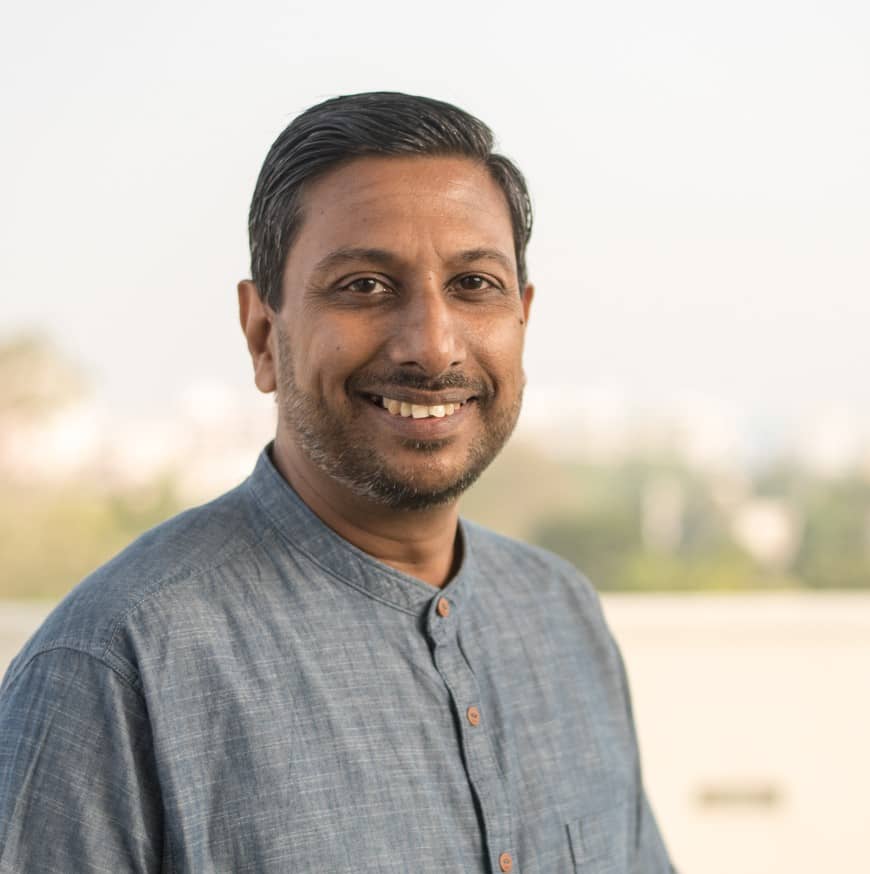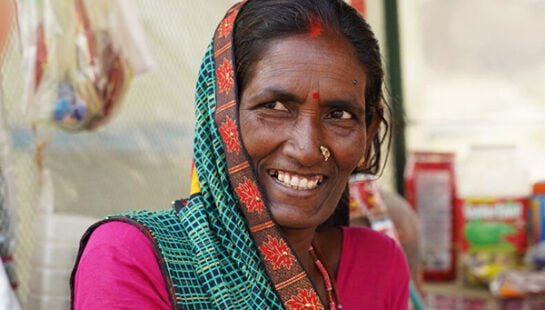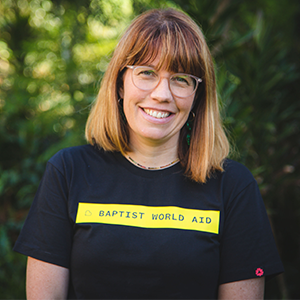In early May, India began seeing daily COVID-19 cases above 400,000 and tragically, daily COVID-related deaths into the 4,000s.
Baptist World Aid’s partner, Asia Pacific Baptist Aid (APBAid)—the humanitarian aid and development arm of the Asia Pacific Baptist Federation—is responding to the crisis. APBAid coordinates the relief and development efforts of Baptist bodies and churches in 21 countries across the Asia Pacific region.

Baptist World Aid will be supporting APBAid’s COVID response project that will provide vulnerable families and communities with access to crucial medical care and supplies, and pastoral and psychosocial support.
We spoke with Roshan Mendis, Director of APBAid, who is based in Sri Lanka, about the COVID-19 situation in India.
First, please tell us how you and APBAid staff are feeling.
Roshan Mendis: At times like this we are all stretched to the utmost to say the least. However, the nature of humanitarian work and the needs of those in the most dire circumstances compel us to do what we do.
Please uphold us in your prayers – that is what keeps us buoyed in his grace. We are thankful to God for his enabling and sustenance, the energy to keep us at optimum.
What are you seeing or hearing on the streets of India now?
Roshan: We are seeing…
- Massive lines of people outside hospitals seeking medical attention. Makeshift rooms and beds have been set up but it is still not enough to meet the demand.
- People are reporting shortages of basic medicines such as pain killers, vitamins and antibiotics. Medicines are available on the black market at exorbitant prices which low-income families can’t access. Families are resorting to pawning or selling their jewellery to purchase oxygen and medicines and even to hire transport to take their ailing loved ones to medical facilities.
- Some remote areas lack ambulance facilities to take sick people to hospital. Some have to walk up to 10km.
- Exorbitant prices are being charged at crematoriums which are overwhelmed.
- Lockdowns in several areas across India are adding to the economic plight of low income families, and the inability to provide for nutrition and basic hygiene needs are surfacing.
- We are also receiving word of many children losing both parents to COVID-19. Care and support for them with their next of kin is the first resort, but in some instances is not feasible, leaving children with less than an ideal future by being placed in orphanages.
What are India’s immediate needs?
Roshan: The biggest need is oxygen. And access to facilities that can administer it to patients. Given the rather unusual physiology of what is being termed silent hypoxia or happy hypoxia, COVID patients may be at death’s door and be totally unaware of the fact. The physical and emotional impact of seeing such sudden deterioration and death of loved ones is huge. Drugs for basic COVID treatment like the antiviral drug Remdesivir is another need. There is a host of non-medical needs ranging from meals to transport costs, to burial expenses and psychosocial support costs.
What do you think will happen over the coming weeks?
Roshan: The feelings of hopelessness, fear, anxiety and even depression are phenomenally high. The emotional stress of frontliners, pastoral staff and caregivers is at levels that can be quite unhealthy for emotional and mental wellbeing.
Experts assessing the current rate of infections and deaths in India warned that the pandemic is going to get worse in the coming weeks. According to an American study, India’s daily tally of coronavirus-induced deaths could peak by mid-May at 5,600. This would mean that close to 300,000 people may lose their lives to COVID-19 in India between April and August alone.
How is APBAid responding to COVID-19 in India?
Roshan: APBAid is setting up a response and coordination mechanism with IMCC (India Missions Coordination Committee). It is comprised of medical professionals, a psychosocial professional and a communication coordinator. Parallel to this, taskforces are being set up to manage the two key needs of medical and psychosocial support.
Why have you chosen medical and psychosocial support and what will this look like on the ground?
Roshan: It was clear that emotional trauma was high and had to be addressed. So, we have chosen this two-pronged integrated approach that seeks to support both medical and non-medical as well.
APBAid will play a supportive and facilitative role in the response and coordination. The task forces will consist of convention representation of respected individuals both in-country and outside, medical professionals and church leadership from different ministry groupings.
India was containing the virus up until recently. How did they do this and what changed?
Roshan: Back in early February, hospitalisation numbers had plummeted. Epidemiologists said the only likely explanation was widespread immunity. But the recent surge could be attributed to both virus behaviour and people behaviour. As was predicted, the virus went into what scientists believe is a double and triple mutation.
Large group gatherings may have also played a role and people began to relax after India launched its vaccination campaign in January. As a result, many let their guard down and went back to socialising, traveling and holding large weddings. Recently, state election campaigning and returning local migrant labour could have attributed to infection spread.
India relies heavily on private sector healthcare. What has this meant during the COVID-19 response?
Roshan: During times of crisis, the most vulnerable and marginalised populations are the most impacted. These include the homeless, elderly, children, religious minorities, people with disabilities, sex workers, slum dwellers, and women subjected to violence.
At the early stages of the crisis, a coalition of almost 150 NGOs across 15 states were brought together to coordinate efforts, meet health service gaps, provide nutrition, and provide social and asset protection.
What else should Christians in Australia understand about the current situation in India?
Roshan: The need is huge and will stretch our giving capabilities. At such times we can feel overwhelmed with its magnitude. However, every little bit helps, and no gift is insignificant. We know God is with us.
Your gift to the Disaster Action Fund means our local Christian Partners can respond urgently and effectively when disasters strike, both now and in the future. Donate now.



 Baptist World Aid
Baptist World Aid

 Meredith Benson,
Meredith Benson,